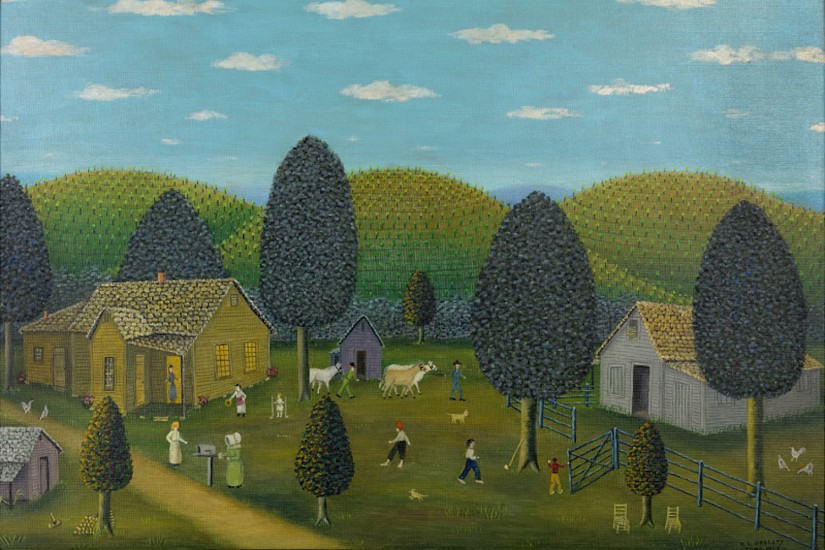Genoways begins his book by showing us Kyle Galloway, Meghan’s fiancé, doing some modern self-provisioning: welding the floor of a grain bin from salvaged steel so he can store his own soybeans (instead of paying to store them at the grain elevator) as a hedge against fluctuations in the soybean market. The farmscape Genoways portrays is the land of the unfree trying desperately to retain the illusion of their freedom, an illusion made all the more illusory in the era of Trump, whose proposed tariffs will surely hurt farmers.
Industrial agriculture—shaped by the USDA, by chemical and seed companies, by the vagaries of domestic and export markets—relies on a picture of the family farmer to soften its image. It wants it both ways. It wants to celebrate its technical innovations, like genetically modified crops, computer-driven tractors, and satellite-monitored fields. And yet it also wants to foster our national nostalgia for farming and the men and women who do it. The contradiction is intolerable, especially to farmers.
Genoways tries to make the reader feel the contradiction too, and he gets it right, for by the time you finish reading This Blessed Earth, you feel hopeless and agitated. Meghan and Kyle marry and will go on farming. They will remain unwilling apologists for an agricultural system that has driven farmers off the depleted soil, drawn down the aquifers, and killed the small towns of Nebraska—a system, Hammond says, in which “everything has been built around a certain way of doing things.” They’ll oppose the Keystone XL pipeline—dead under Obama, revived under Trump—which threatens their land, their livelihood, and their friendships. They’ll work as hard as possible because how hard they work is the only thing they can control, and because labor is the only thing they have to offer. An article of faith in their world, writes Genoways, is “that the greatest success belongs to the family that works the hardest.” Like so many articles of faith, this is simply not true.
